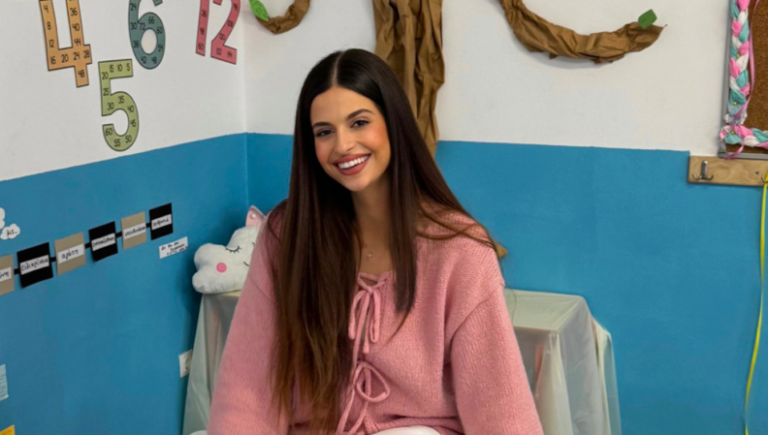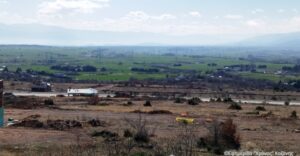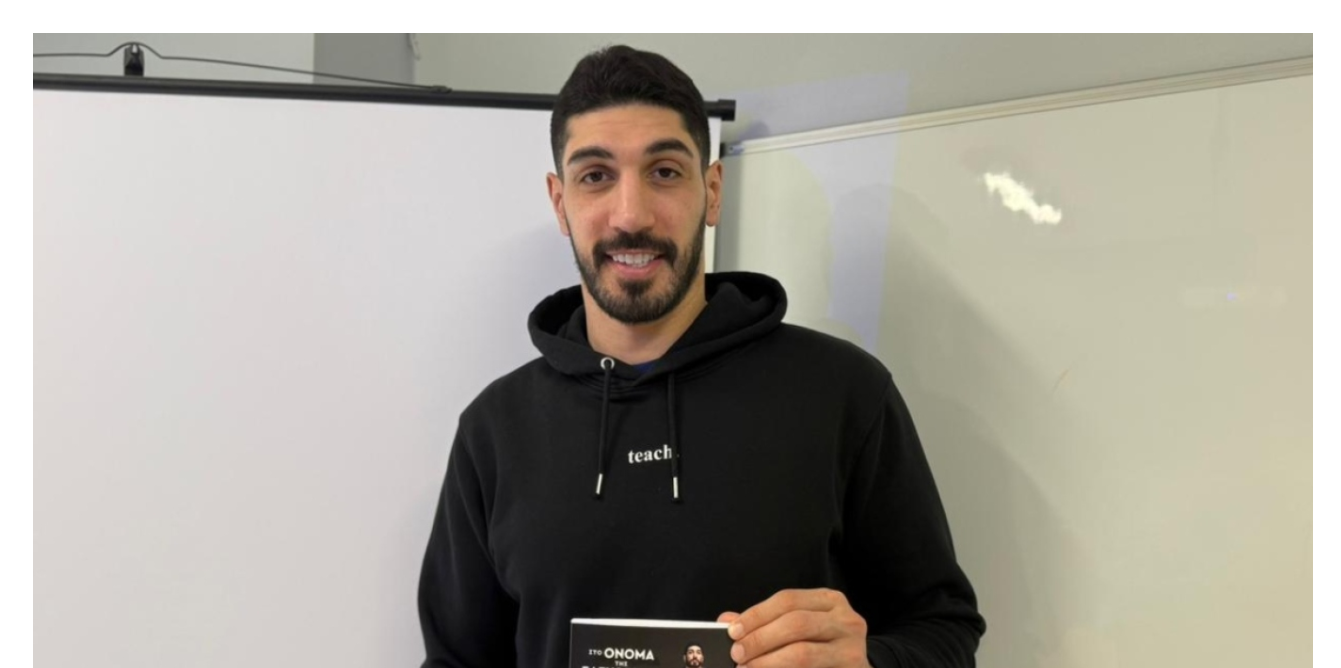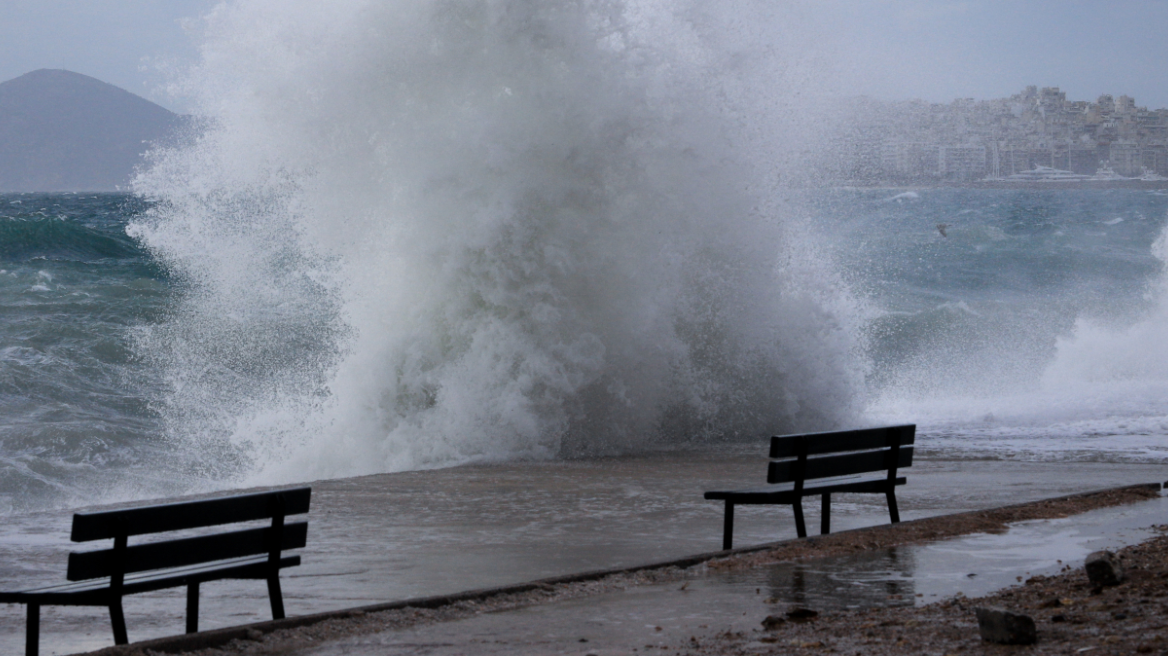With a pizza, she teaches fractions. When learning how to write letters in language class, her students began corresponding with a school in Piraeus. History becomes easier to grasp because it is brought into their everyday context. The interactive whiteboard has become the star of daily classroom life, helping students better understand the material through images and videos.
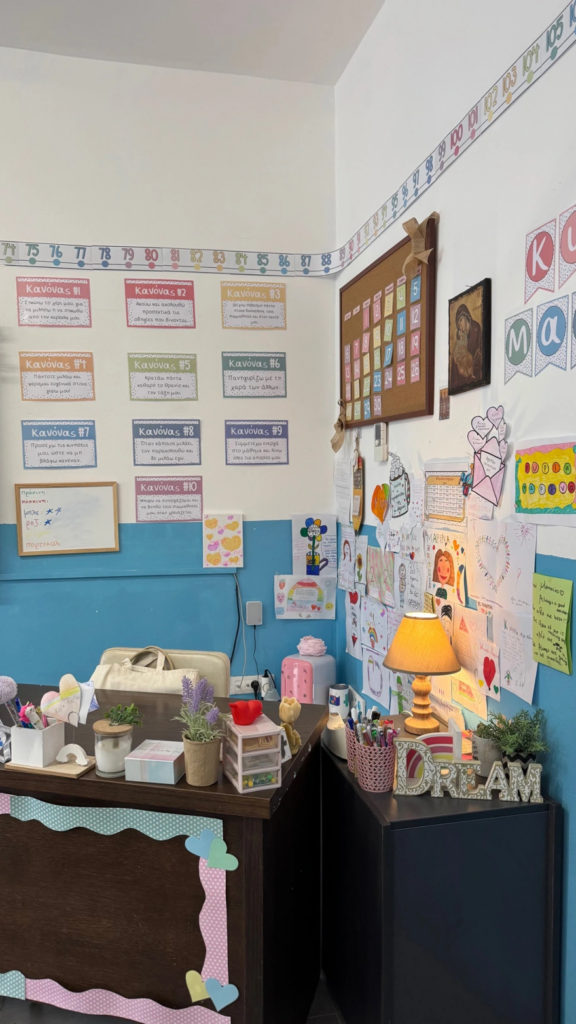
Even the wall mirror, where students stop to make a positive affirmation about themselves, serves to boost their self-esteem. A memorable experience: the Christmas pajama party in class, with blankets and hot chocolate.
“I teach with my mind, but even more so with my soul,” says Marina Fasaki, a young teacher currently working in Mykonos, who often shares her experiences on TikTok.
In mid-October, Marina Fasaki was appointed as a substitute teacher in Mykonos, where she took over a fifth-grade class. A graduate of the National and Kapodistrian University of Athens with a Master’s in Educational Psychology, she continues a family tradition of teaching—following in the footsteps of her mother, grandfather, and great-grandfather, all teachers from Karpathos.
“Because I had experienced very impersonal, dull classrooms, I wanted mine to be different. When I said I wanted to make kids happy to come to school, people laughed. They said, ‘Okay, time to wake up’… And yet, this year I have 24 students—17 boys and 7 girls—and they say it’s the first time everyone in class feels like friends. I also try to adapt the curriculum to their life experiences, so they can understand it better,” she explains, citing the example of bringing pizzas to class to teach fractions.
She emphasizes that “before knowledge comes the relationship with the children. That’s why I invest in real connection with them. Their emotional well-being comes first.” Fasaki personalizes her approach to each student, because “learning thrives only in relationships grounded in safety and trust.”
Her main goal is to make school an unforgettable and positive experience. She creates space for creativity, play, imagination, and humor. “One of the best days was the pajama party at Christmas. The kids brought their blankets and snacks, I made hot chocolate, we decorated the tree together, watched a Christmas movie, and talked about the meaning of the holiday. It was truly a touching experience.”
She adds that she has the support of the parents: “The curriculum is progressing normally, the children study and are responsible, so there’s no reason for the parents to doubt me. They don’t complain because the children now understand that studying helps them grow as individuals.”
A Classroom Full of Purpose and Color
Together with her students, Fasaki has created a colorful classroom filled with meaning. Special emphasis has been placed on themed corners.
“One wall has a mirror—our ‘Positive Affirmation Stop.’ It’s a weekly exercise we do to boost their self-esteem, based on the principle that our brain records and acts on what we say. At first, they felt awkward, but now they handle it with maturity. They stand in front of the mirror and say things like ‘I am loved,’ ‘I am respected’…”
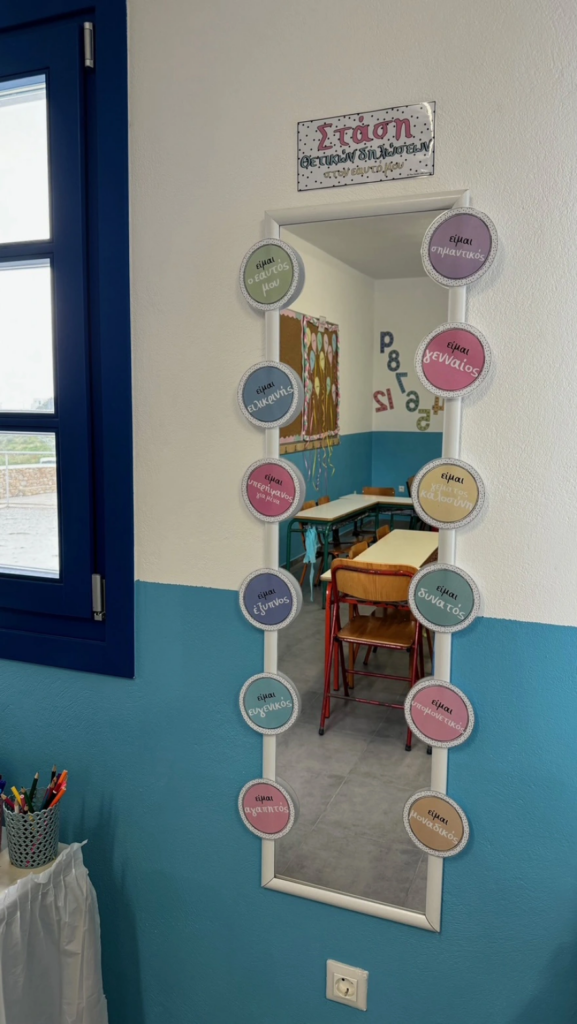
Another themed corner is “Change the Way You Think,” based on the book by Stanford psychologist Carol Dweck. “After three hours of discussion, we posted students’ thoughts like: ‘Instead of saying I made a mistake, I’ll say mistakes help me improve,’ or ‘Instead of saying I’m bad at math, I’ll say I need to try harder.’ The positive impact is now visible—students who used to cry when they didn’t do well in a test have learned that failure doesn’t define them. They’ve embraced the idea that ‘our mistakes are our guides.’”
A favorite corner is the “Tree of Knowledge,” which promotes reading. “Just like a tree blooms when watered, children bloom when they read books. For every book they read, we add a leaf to our tree,” says Fasaki. The class lending library is constantly in use.
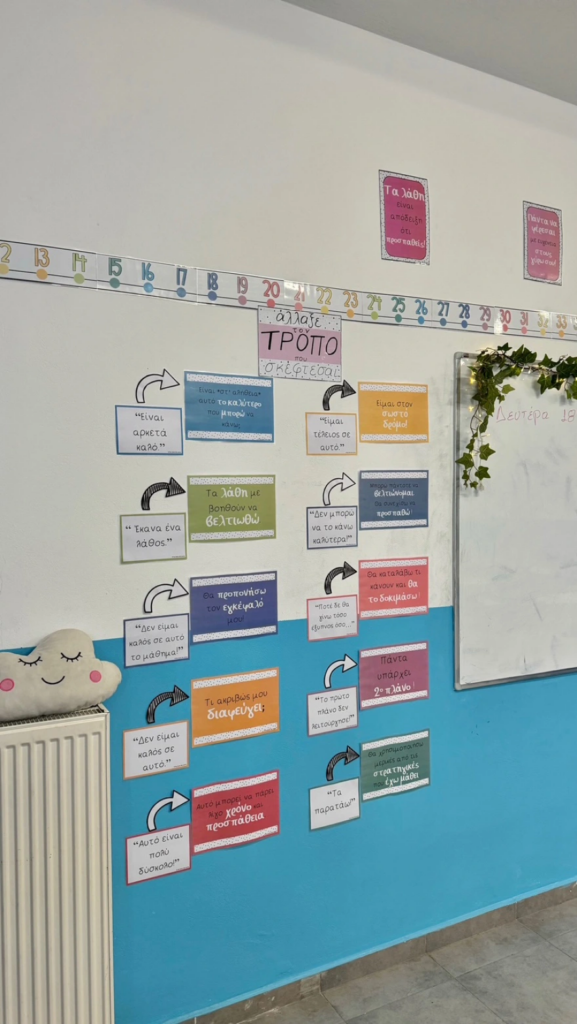
Another unique station is the “I Wish My Teacher Knew” box, where students leave notes—signed or anonymous. Fasaki collects them, reflects on them, and brings topics up for discussion during the class’s weekly “Confidential Circle,” where students share their thoughts, feelings, or even apologize for past behavior. “They’ve realized now that solutions don’t come from yelling or insults, but from communication.”
Beyond the Classroom
Fasaki also enriches her lessons with interactive educational games from the internet, outdoor classes—since children enjoy being in nature—diagrams, videos, and images, especially in history lessons. “Thankfully, we have an interactive whiteboard, and I use it all day,” she notes, adding that she also uses AI tools: “We bring children’s essays and projects to life with AI, and they love it.”
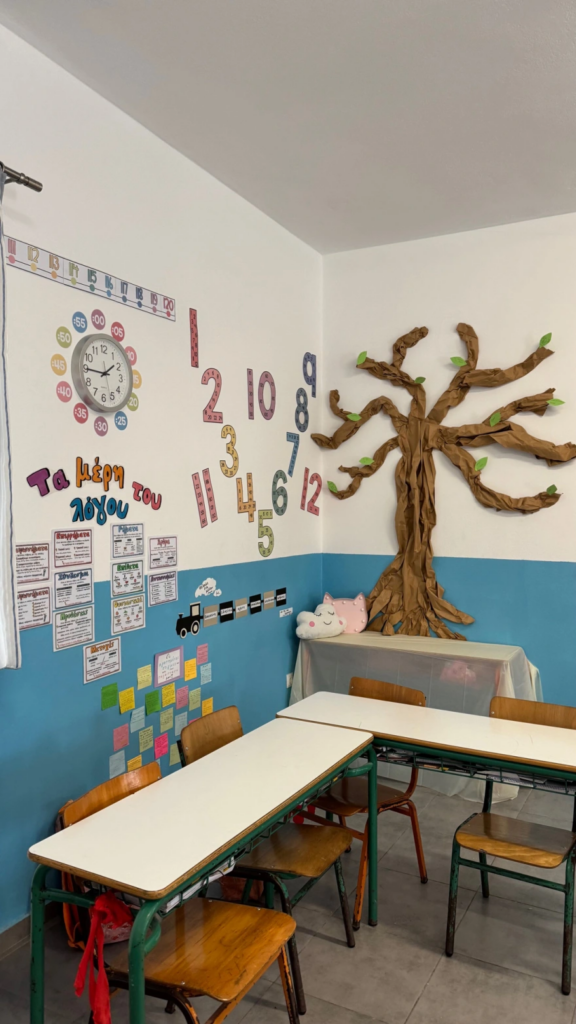
A special project this year was teaching letter writing. “It was part of the language curriculum, but the kids were unfamiliar with the process. So I coordinated with my mom, who teaches at the Ralleia Experimental Schools in Piraeus, and our classes began exchanging letters. After a lottery draw, each child was paired with a peer. They’ve already exchanged letters five times, and the excitement when the mail arrives is indescribable.”
Life Isn’t “Rosy”
Finding a place to live was extremely difficult at first. So was surviving on such an expensive island, as a teacher’s salary barely suffices.
“When I came looking for housing, I was discouraged. Everything was either ridiculously expensive or in terrible condition. Rent for something decent was over €600—how could I afford that on a €900 salary? I was on the verge of quitting… And quitting means being off the teaching list for two years. Thankfully, I found a place—very small, but enough for me,” she says.
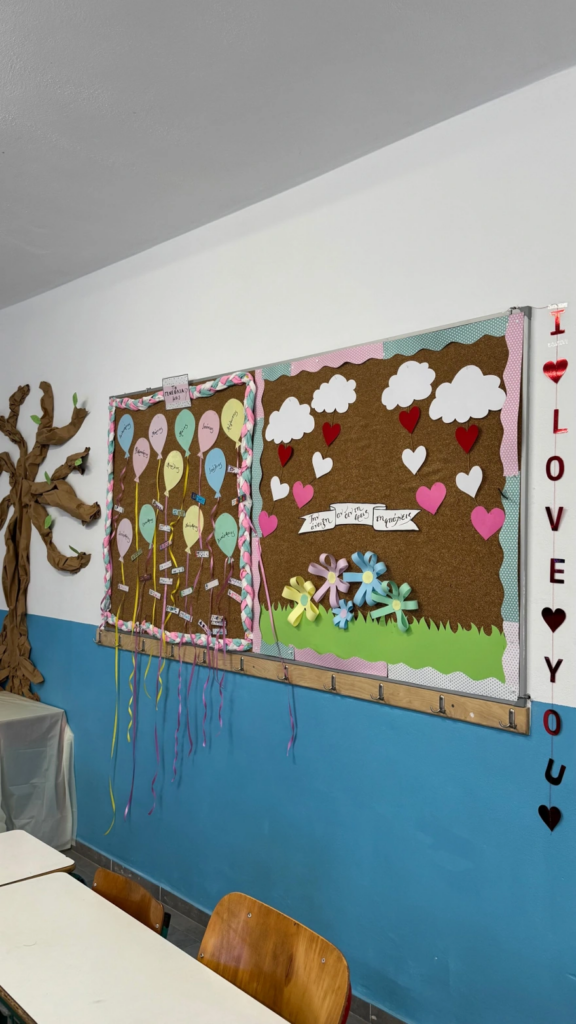
She adds, “I don’t like complaining, but it’s really hard for a teacher to get by on this salary. Of course, we know that choosing remote areas and islands comes with challenges, but Mykonos is another world. When I was house-hunting and heard the prices, the landlords simply said, ‘If you won’t pay, someone else will.’”
Ask me anything
Explore related questions
